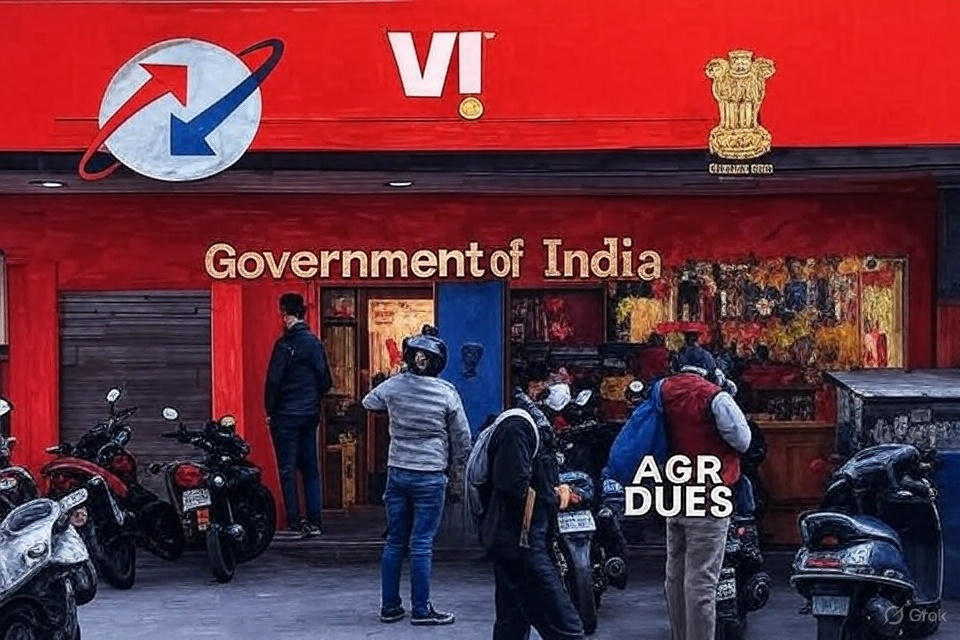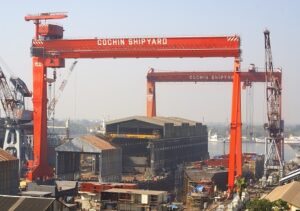
In a significant development for India’s telecom sector, Vodafone Idea (VI) has filed a fresh plea with the Supreme Court, seeking a waiver of over Rs 30,000 crore in penalties and interest tied to its Adjusted Gross Revenue (AGR) dues. The telecom operator, grappling with financial strain, has requested an urgent hearing on May 19, 2025, emphasizing the critical need for relief to ensure its survival. With VI’s shares surging to a near-day high following the announcement, the plea has sparked discussions about its broader implications, particularly for the government-owned BSNL.
Vodafone Idea’s Plea: A Cry for Financial Relief
Vodafone Idea’s latest move comes as the company battles the fallout of the 2019 Supreme Court ruling on AGR, which mandated telecom operators to pay hefty dues, including penalties and interest. In its plea, VI argues that the government, holding a 49% stake in the company, is constrained by the original AGR judgment from providing further relief. The telecom giant has positioned the government as a “partner” in its operations, urging the court to intervene to prevent a potential sector-wide collapse.
“The government is handicapped in granting any relief owing to the constraints of the AGR judgment,” VI stated in its plea, highlighting the legal barriers preventing financial assistance.
The company is specifically seeking a waiver of penalties and interest, which constitute a significant portion of its Rs 2.1 lakh crore AGR liability. A favorable ruling could provide VI with much-needed breathing room, bolstering its financial health and competitiveness in a market dominated by Reliance Jio and Bharti Airtel.
Why Vodafone Idea’s Plea Matters
The outcome of VI’s plea could reshape the telecom landscape in India. A waiver of Rs 30,000 crore would not only ease VI’s debt burden but also strengthen its ability to invest in network expansion and 5G rollout. This is crucial for maintaining a competitive three-player market, which experts argue is essential for consumer choice and pricing stability.
However, the plea also raises questions about fairness and market dynamics. VI’s repeated requests for relief, coupled with the government’s significant stake, have led to concerns about preferential treatment. This brings us to the elephant in the room: how will continuous government support for Vodafone Idea impact BSNL, the state-owned telecom operator?
BSNL: The Unintended Casualty?
BSNL, fully owned by the government, has been struggling to regain its footing in the highly competitive telecom market. Despite recent efforts to revive the operator through a Rs 1.64 lakh crore revival package and plans for 4G and 5G rollout, BSNL remains at a disadvantage compared to private players. If the government continues to prioritize financial support for Vodafone Idea, it could inadvertently undermine BSNL’s revival efforts.
Here’s how government support for VI might affect BSNL:
- Resource Allocation: Government funds and attention diverted to VI’s relief measures could limit resources available for BSNL’s network upgrades and expansion plans.
- Market Perception: Preferential treatment for VI might signal to consumers and investors that BSNL is a lower priority, further eroding its market share.
- Competitive Disadvantage: A financially stronger VI, bolstered by AGR relief, could intensify competition, making it harder for BSNL to attract customers, especially in rural areas where it has a strong presence.
While the government’s stake in VI justifies its interest in the company’s survival, BSNL’s role as a public-sector entity serving underserved regions cannot be overlooked. A delicate balance is needed to ensure that support for VI does not come at the expense of BSNL’s long-term viability.
The Bigger Picture: Telecom Sector Stability
The telecom sector is a critical pillar of India’s digital economy, and the survival of both VI and BSNL is vital for maintaining competition and connectivity. A collapse of VI could lead to a duopoly, potentially driving up prices and reducing consumer options. Similarly, neglecting BSNL could weaken the government’s ability to provide affordable telecom services in remote areas.
The Supreme Court’s decision on VI’s plea will be a pivotal moment. A ruling in VI’s favor could stabilize the company and preserve market competition, but it must be accompanied by a clear strategy to support BSNL’s growth. The government, as a key stakeholder in both entities, faces the challenging task of ensuring equitable treatment without compromising the sector’s overall health.
What’s Next?
As the May 19 hearing approaches, all eyes will be on the Supreme Court. Investors have already shown optimism, with VI’s shares hitting a near-day high on the news. However, the broader implications for BSNL and the telecom sector remain uncertain. Will the government find a way to support VI while safeguarding BSNL’s interests? Only time will tell.
For now, stakeholders and consumers alike are watching closely as India’s telecom saga unfolds. Stay tuned to The ExpertSK blog for updates on this critical issue shaping the future of connectivity in the country.




